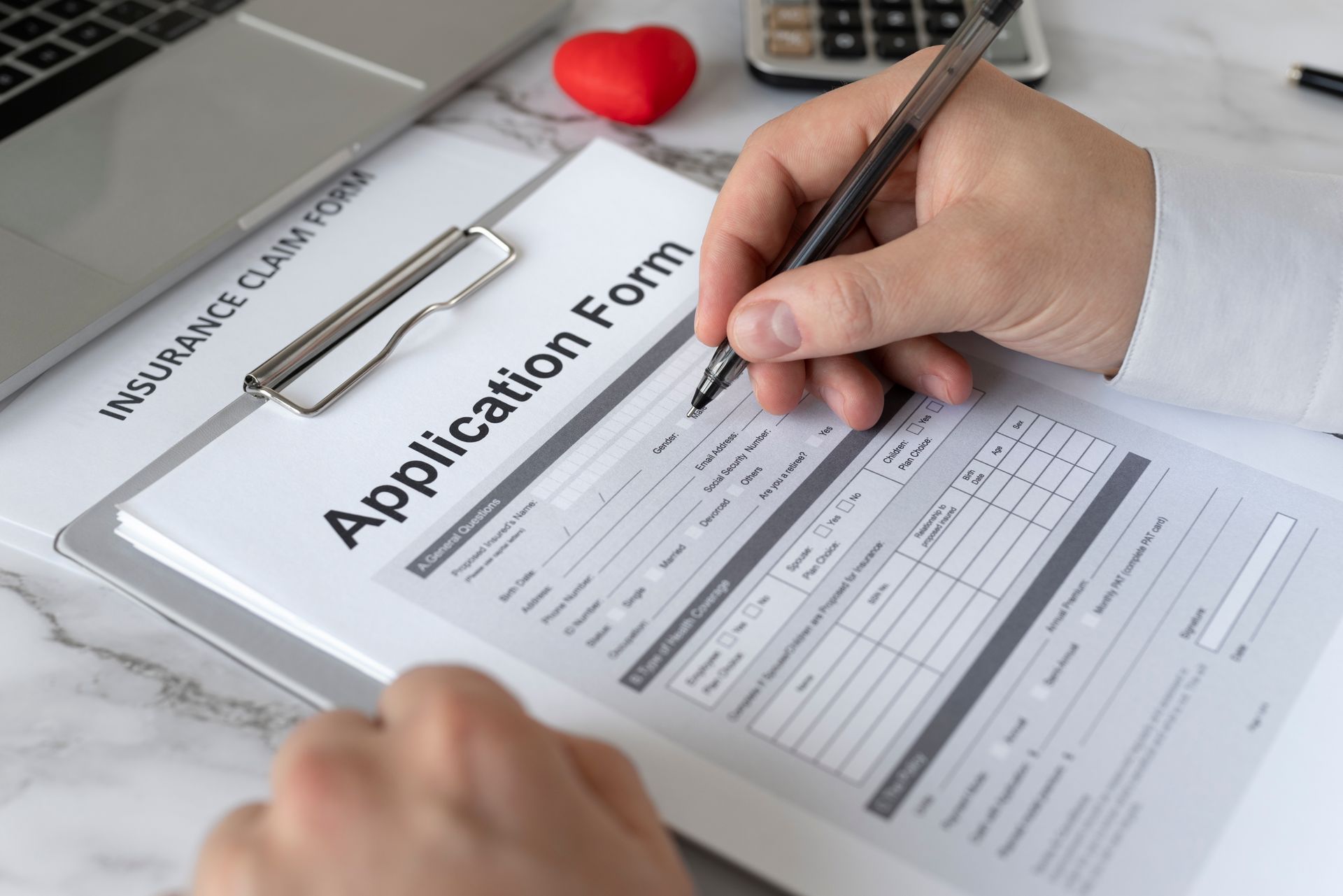Spousal Sponsorship Application Returned

Sponsoring your spouse or common-law partner is a complex process for both parties. First, there is a lot of information needed from both the sponsor and the foreign national requesting permanent residence. Let’s be honest, Canada Immigration does not make spousal sponsorship easy. The complete application involves a complex package you must assemble properly, with many moving parts. The requirements for the forms and all supporting documents are quite onerous, and Canada Immigration has no qualms at all about returning incomplete applications for what many of us would see as a very minor error somewhere.
To give you an idea, the Document Checklist alone for spouse or common-law applications is ten pages long, which tells you that your actual package for your spousal sponsorship will be many times longer than that. Properly completed packages, not including translations, usually exceed 100 pages.
With the transition to the new online application process in the Fall of 2022, putting together a perfectly complete application for spousal sponsorship is even more complicated. On the plus side, mailing delays are no longer a problem with online applications, but the technical pitfalls of navigating the online system has made everything else more difficult. Navigating Canadian immigration law is one thing, but using the electronic portals give us a lot of additional headaches.
In this article we outline some of the most common mistakes people make in spousal sponsorship applications, which are also the reasons why your application may be returned.
First….let’s look at the consequences of a returned spousal sponsorship application.
Consequences for you if application returned
If your application is not perfectly completed with all necessary forms and supporting documentation when received by Immigration, Refugees and Citizenship Canada (IRCC), the immigration authorities will return the file to you and ask you to start over. They do not pick up the phone or email you – they just return it. This is a very frustrating experience indeed when you thought your file was all in order for your partner’s permanent residence.
Not only have you lost time, but your partner in Canada may have lost implied status (now called maintained status) or their work permit may have expired. For spouses and common-law partners waiting abroad, your dreams of family reunification through family class sponsorship have just hit a serious roadblock. As the principal applicant, your spouse or common-law partner will not be getting permanent residence or entering Canada nearly as soon as you had planned.
Depending on how long IRCC took before they returned the spousal sponsorship file to you (often months, during which time you do not know your application status and there is no way to find out) – some of your documents may have expired and you will need to replace them. The forms may need to be re-done as well. The price of an incomplete application with its many setbacks can be very high indeed for those hoping for permanent residence within the posted processing time.
So let’s make sure you avoid the most common mistakes!
Most Common Reasons a Spousal Sponsorship Application is Returned
- Choosing the wrong type of application – inland vs overseas
When setting up your application framework in your online account , one of the first questions you have to answer for spousal sponsorship applications is whether you are applying inland (in-Canada class) or overseas (family class). The overseas process is sometimes called an outland application.
If your spouse or partner is already in Canada, you can use the inland process. Anyone can apply using the overseas process. That means spouses and common-law partners already in Canada with valid temporary status also have the option to use the overseas process if they wish – there are pros and cons of each option that play out differently for each couple. You may wish to get advice on which is best for you. The application details and the factors the officer looks at when assessing applications will vary depending on whether the couple is living together in Canada or not, and the supporting documentation you need will reflect this differs as well, so it is a critical decision.
In addition, if you apply in the wrong category, you may find yourself with a refused application as the rules under Canadian immigration law have precise requirements for each.
- Errors in application forms – including mixing up the sponsor and the principal applicant
There are dozens of ways you can make an error in the spousal sponsorship application forms, from leaving a question blank, answering questions incorrectly, having gaps in your history, even mixing up who is the sponsor and who is the principal applicant. There are also very technical definitions used in Canada’s immigration system for things like ‘dependent children’ or ‘family member’ that are explained in the Guides and must be used. A single form where one of these definitions is not correctly understood will derail your package.
When assessing sponsorship applications, the immigration authorities are pretty ruthless. A single error in a form is enough for your entire immigration application to be returned as incomplete. You must read, understand and follow the instruction guide meticulously when preparing the forms for the sponsor and sponsored spouse and compiling the supporting documents. Incomplete applications are very common, especially for self-represented applicants.
- Outdated application forms
The PDF forms for spousal sponsorship applications are amended by IRCC from time to time, and you need to submit the most recent version of the forms when you apply. The version of the form can be found in the bottom left corner of the form, and the old one is usually taken down when a new version is posted.
If your sponsorship application is returned, the forms may have changed in the meantime, so be sure to check your version of each form against the one on the IRCC website before re-submitting your application.
- Missing or outdated signatures
If any forms have missing or stale signature, the whole file will be returned as an incomplete application. All forms must be signed within 90 days of when IRCC receives your sponsorship application. The signatures on your forms must still be valid when you re-submit your application, so double check your dates carefully before re-sending your package. This requirement will often mean re-doing the forms, updating them to the current date, and signing them again.
- Missing a document
You need to submit all documents listed on the Document Checklist applicable to your situation, including all forms and supporting documents for both parties, as well as for any family members of the principal applicant. You must also submit any documents listed in the Country Specific requirements for the countries where you have lived (such as a hukou for China). It is critical to check this link for your country or countries, if only to confirm there are no additional country-specific requirements needed in your case.
The format of forms and documents is also necessary to pay attention to, for example when a digital copy is acceptable, whether an original signature is needed or electronic is okay, etc – these details are also governed by rules that must be followed for the application to be accepted.
All supporting documents identified can be assumed to be essential and any documents missing or improperly presented will likely result in your sponsorship application being returned as incomplete.
- Issues with police clearances – incomplete or expired, wrong format
Issues with police clearances are a really common reason for a sponsorship application to be returned. It is considered an incomplete application if a police certificate is missing.
IRCC requires more than one type of clearance for some countries. There are specific types of clearances that are acceptable while other types are not, and the date of issue of your police clearance is very important. If you are living in the country that issued the police clearance at the time you apply to IRCC, then the clearance must be less than 6 months old when IRCC receives it. If you are living outside the country that issued the police clearance when you submit your application to IRCC, then the clearance must have been issued after the last time you lived in that country.
Color images of police clearances must be uploaded, with proper translations when required.
A mistake on any one of these points will cause your application to be returned as incomplete.
- Incorrect translations
Any document that you are submitting with your application that is not originally in English or French needs to be accompanied by both a proper translation and a certified true copy of the original document.
IRCC has very specific details about what constitutes a proper translation , and the safest way to ensure that you meet those requirements is for you to get your translations done inside of Canada by a translator who is familiar with the immigration requirements. A certified true copy of the original document is usually created by taking the original to a lawyer – either in Canada or abroad.
- Incorrect fees
The application fees can also change from the time you submitted your original package to the time that you re-submit it where your application was returned due to incompleteness. Check the IRCC website to ensure that the amount you have paid is still the amount required.
What to do if your sponsorship application is returned as incomplete
Of course, if your package is rejected for a technical reason above, it is not considered a spousal sponsorship refusal. A spousal sponsorship refusal is where they consider the whole application and reject it on the merits (in that case you need to appeal to the Immigration Appeal Division or apply for judicial review, depending on whether it is an inland or outland application).
If it is returned as merely incomplete, it needs to be fixed before an immigration officer will assess it. This does not count against you; your spouse or common-law partner can still be sponsored. A visa officer will eventually approve them once you provide all the evidence – barring serious issues like marriage fraud or inadmissibility, of course. But it may take considerably longer than you had planned on.
If your sponsorship application is returned as incomplete, we recommend that you contact a professional for assistance . It is almost impossible for you to determine exactly how to fix it. IRCC will usually include a letter with the return that gives you some idea of why they decided to return your file, but often they will just list the first thing that they found wrong with the application – not everything that is wrong. It can happen that you address one issue with one form only to have the file returned again for a different issue that was also in the application received prior, but you did not realize this. You can find yourself going in circles with processing delays that go on for months. This is stressful and costly.
Of course, you can only benefit from the processing time posted on the website once a complete application has been accepted. So if you want your partner to enter Canada, or remain in Canada, as a permanent resident sooner than later, it is best to get help with the whole application.
If you are still determined to sort it out on your own, the list of common mistakes above is a good very place to start for double checking everything in your PR application before you submit it again for processing.
Can I use the same payment receipt if my application was returned?
Yes, if your application was returned (not refused), it means that IRCC did not take the payment of your fees and you can use the same fee receipt again. Just double check to ensure that the fees did not change in the meantime and that you paid the correct amount initially before re-submitting the file with your original fee receipt. But it is helpful to know it does not expire if you apply for permanent residence later for your spouse or common-law partner.
At The Way Immigration , we do spousal sponsorships every single day – we are very familiar with the sponsorship process. We are experts at preparing sponsorship applications correctly the first time, to avoid delays. We have developed our own 20-page checklist we use for every single application, because that’s how many different matters need to be double-checked before the file is submitted to IRCC for processing if the principal applicant hopes to get permanent residency sooner than later. As a result, we have helped hundreds of couples just like you to become Canadian permanent residents in the posted processing time and achieve their ultimate goal of becoming a Canadian citizen too. Contact our
best immigration consultant in Alberta today about your sponsorship case and we will be happy to assist you.
Frances Wipf, RCIC, is recognized globally as an expert in Canadian immigration matters. She is licensed by the CICC to provide legal representation and strategic immigration insights. In practice since 2008, Fran has successfully guided thousands of clients to achieve their Canadian immigration dreams through a combination of realistic assessment, technical excellence, and honest advice.











